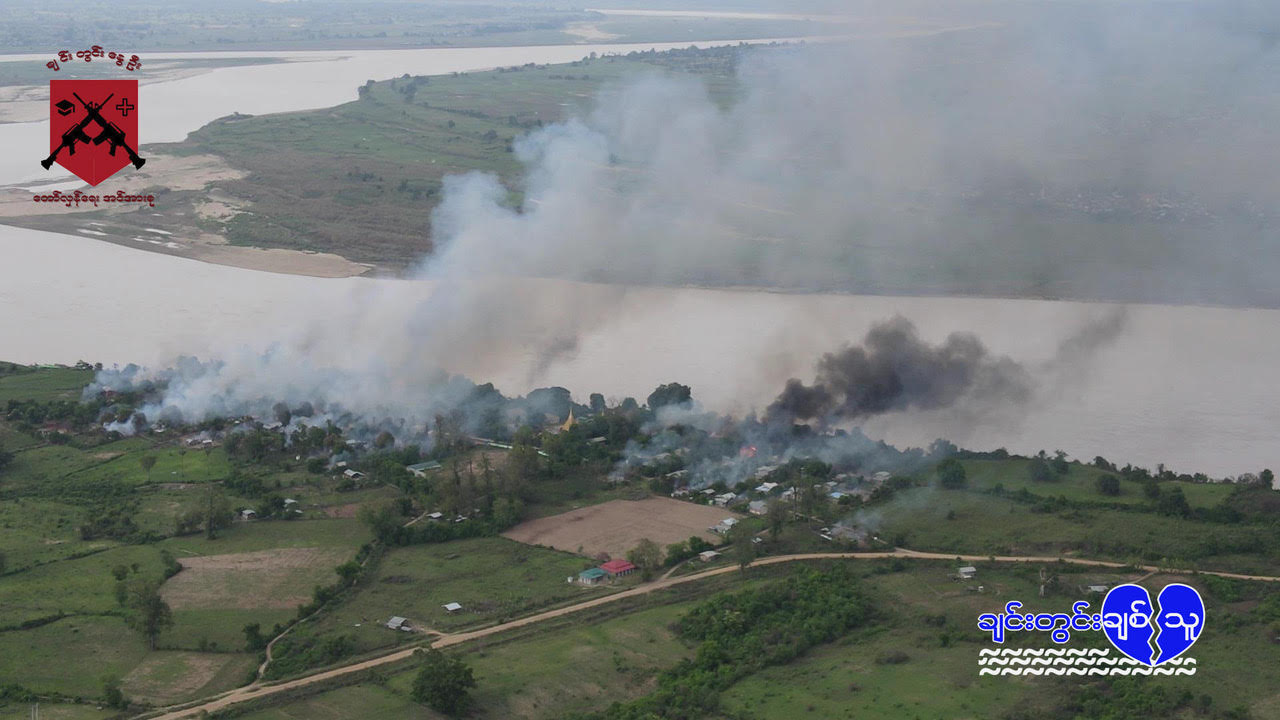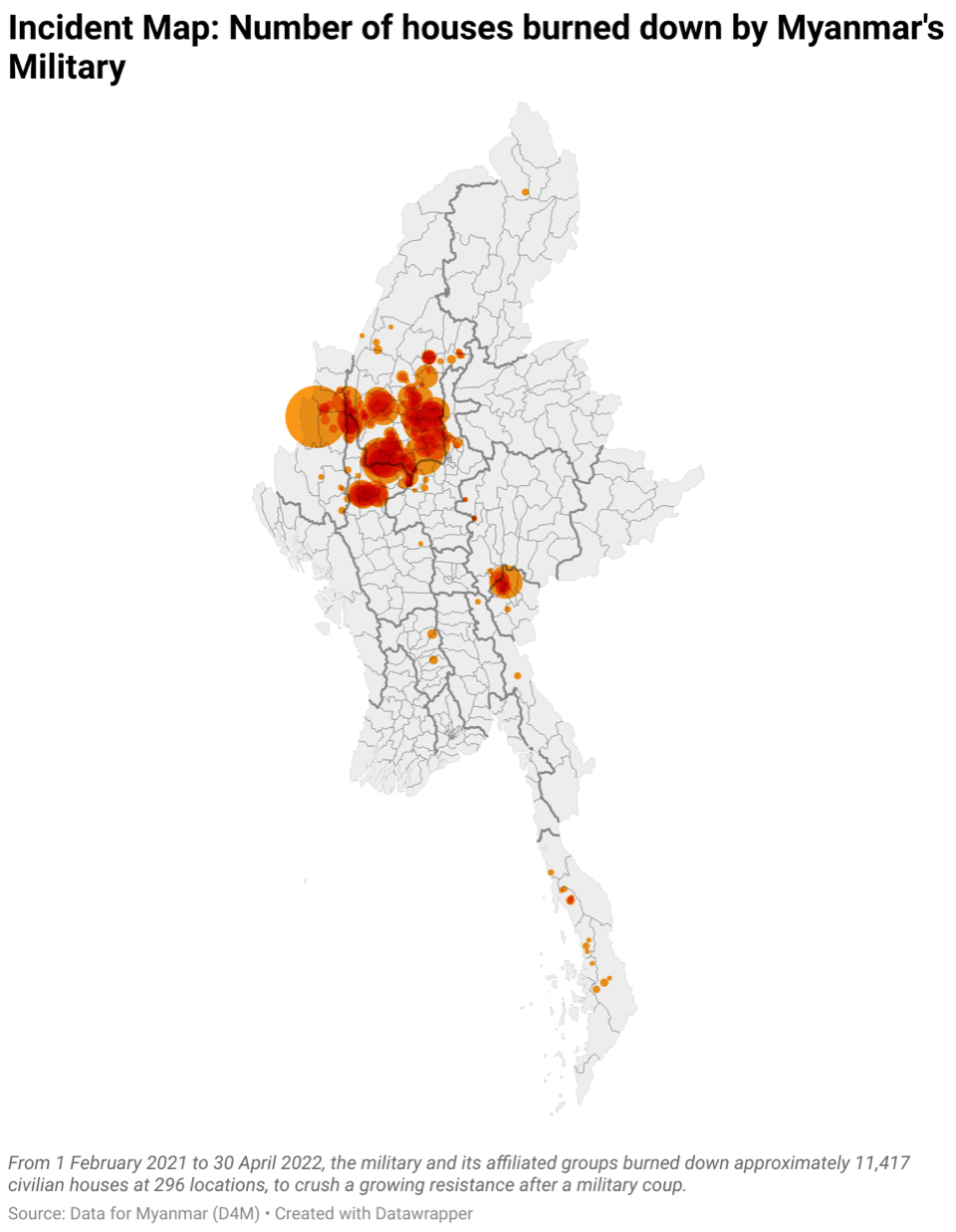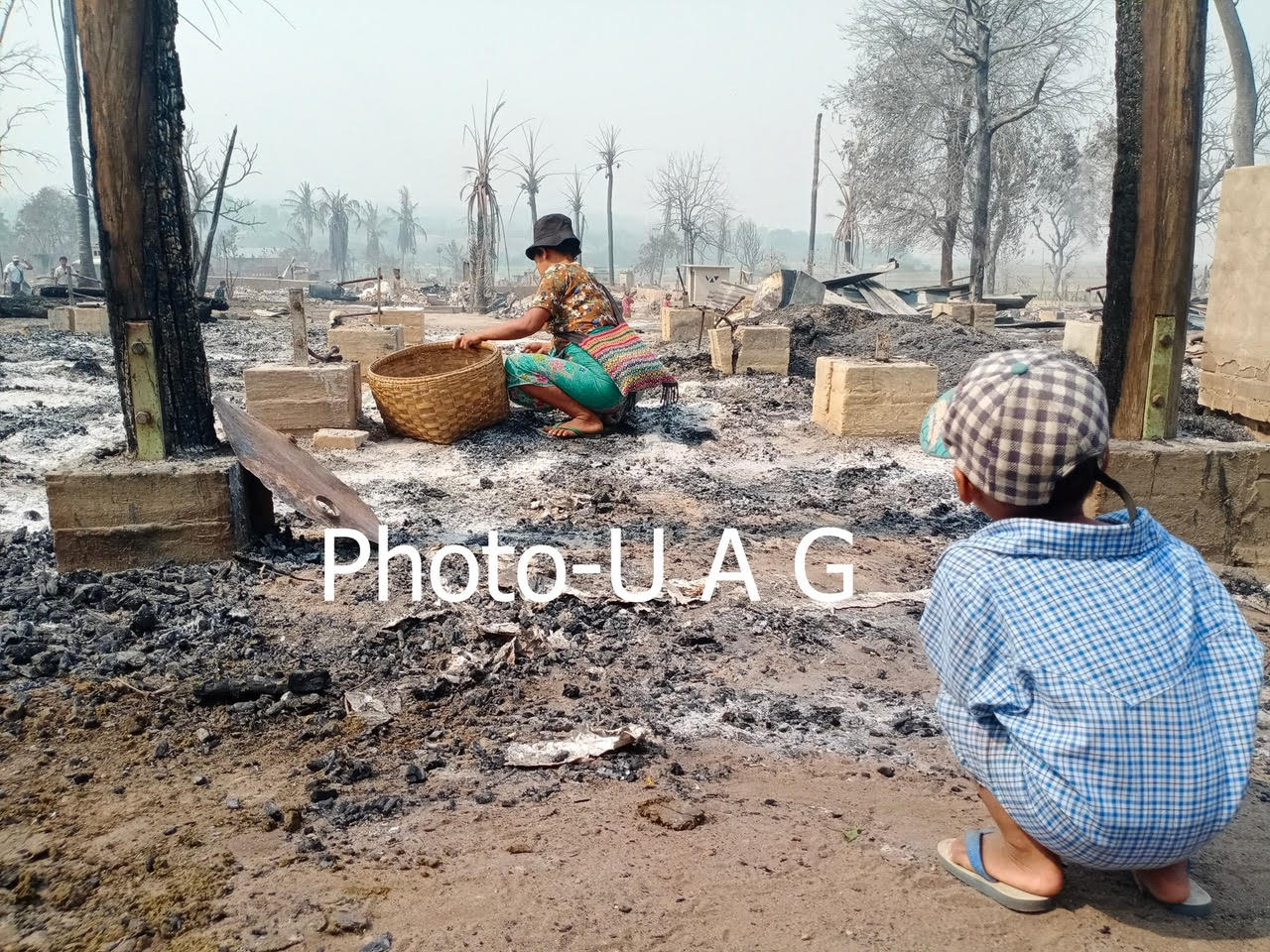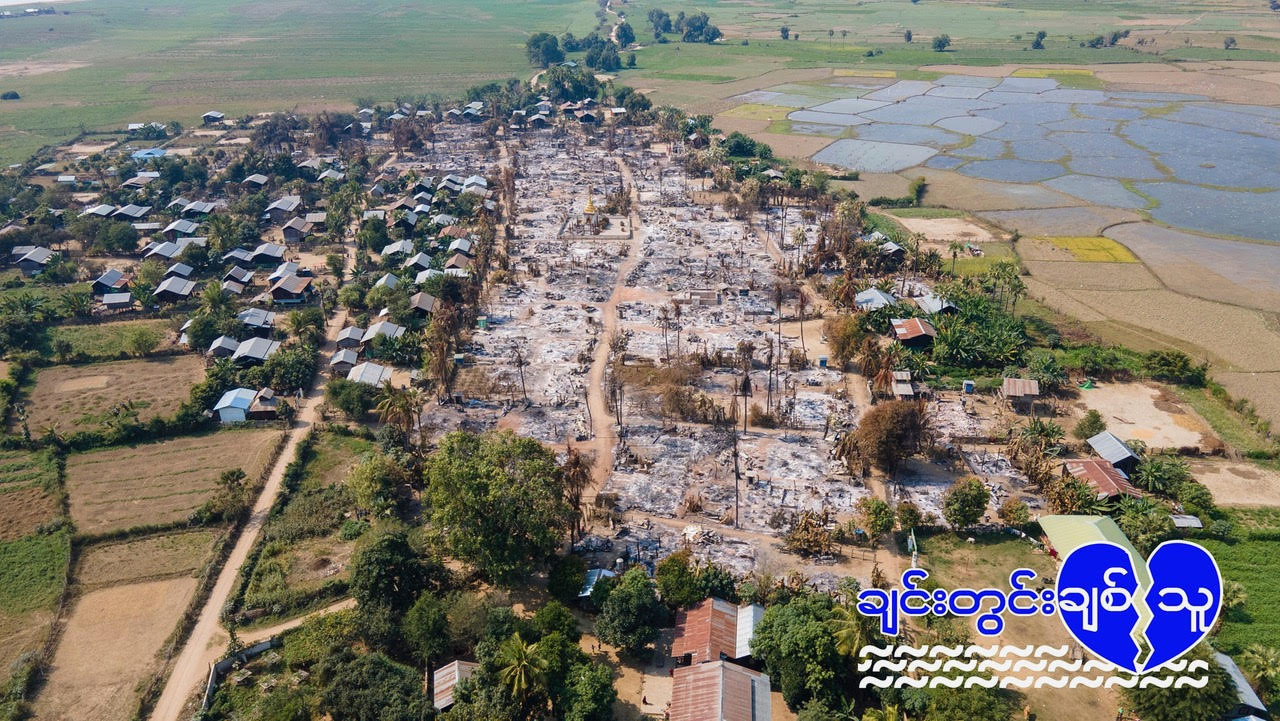Sagaing and Magwe regions and Chin State collectively have recorded the highest amounts of civilian suffering as Myanmar’s junta has continued its war crimes and crimes against humanity in anti-regime strongholds, according to international and domestic reports.
Junta troops repeatedly committed arbitrary killings, massacres, torture, bombardment and burning civilian houses, leaving a large proportion of people displaced.
The areas are also hotbeds of armed resistance with the junta responding heavily, especially in May when troops raided and torched villages nearly every day.

UNICEF’s most recent humanitarian report on Myanmar said more than 320,900 civilians had been displaced by the end of 2021.
“However, in the first quarter of 2022 this figure has more than doubled and, as of 23 May, approximately 694,300 people have been internally displaced in Myanmar since the military coup, with nearly 49 per cent of them (336,600 people) within the Sagaing Region,” it said.
The Institute for Strategy and Policy, a think tank in Myanmar, reported on Thursday that following the coup until May 26, an estimated 22,299 buildings had been burned down and damaged by the junta.

Sagaing Region has suffered the worst, losing 15,530 houses and other buildings in arson attacks, followed by Magwe with 4,822.
Between May 1 and 26, at least 7,662 buildings were burned down across the country, including 5,337 houses in Sagaing and 2,143 in Magwe, the group said.
Nearly 400 houses at 18 villages in the resistance stronghold of Myaung Township, Sagaing Region, were burned down between May 18 and 25, said the institute.
Since the declaration of a people’s war by the shadow National Unity Government (NUG) on September 7, 2021, the junta has stepped up atrocities, including shelling residential areas, looting and burning houses, arbitrarily killing civilians and using them as human shields, especially in Chin, Sagaing, Magwe, Shan, Kayah and Karen.
After facing difficulties in controlling these areas amid growing resistance from people’s defense forces which were attacking military outposts, convoys, detachments, police stations and collaborators, the regime began looting and torching villages, accusing residents of sheltering resistance fighters.
On May 26 and 27, approximately 200 regime troops, including Pyu Saw Htee militia members traveling south along the Chindwin river in seven motorboats, raided and burned Kin and Upper Kin villages in Kani Township, Sagaing Region, without being attacked, according to residents.

After looting, troops burned 130 Upper Kin houses and 210 in adjacent Kin and villagers’ motorboats.
During the Upper Kin raid, Ko Aung Than Maw, 28, was captured and killed by junta troops, residents said.
An Upper Kin villager, who saw the body, told The Irrawaddy on Thursday said it had lost fingers and had numerous stab wounds in the chest. The victim’s head was also wounded.
In recent fighting in Kani, regime forces used drones and an MI-35 helicopter and seized seven displaced civilians as human shields to deter resistance counterattacks.
Mass killings, in which almost 170 people have been killed in five separate massacres since July 2021, have been reported with most of the killings taking place in Sagaing Region, said U Aung Myo Min, the NUG’s human rights minister.
He said regime forces committed massacres in Sagaing and Magwe regions and Kayah, Chin and Shan states with children among the victims.

The junta’s atrocities were also recorded in the anti-regime strongholds of Kayah and Karen states.
The latest report by Amnesty International on May 31 said between last December and March the regime inflicted collective punishment on civilian targets by relentlessly shelling residential areas and using airstrikes which kill civilians and damage homes, schools, hospitals and religious buildings in Kayah and Karen states.
The atrocities have forcibly displaced more than 150,000 people in the states since the coup in February 2021, according to the report. Kayah and Karen states have seen some of the fiercest fighting since the coup as anti-regime fighters fight alongside more established ethnic rebel groups.
Amnesty reported that air strikes killed nine civilians and wounded at least nine others, saying it constituted “a new wave of war crimes and likely crimes against humanity”.

















